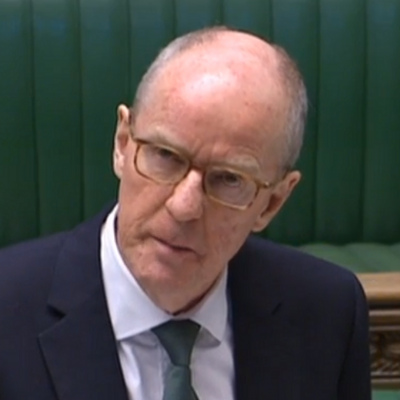Oak National Academy’s chief executive has vowed to tell ministers “no” if they try to interfere with the new £43 million curriculum quango – but concerns still dog the project.
Sir Jon Coles, chief executive of United Learning, has urged new education secretary Kit Malthouse to ditch its “state control” of Oak. The trust last week pulled 1,500 of its lessons from the online platform.
The British Educational Suppliers Association, which says the new body will threaten millions of pounds in investment and hundreds of jobs, is also now seeking legal advice on Oak’s formation. The body threatened legal action earlier this year.
Oak officially launched as an arms-length curriculum body this week, and its framework pledges that the education secretary is “committed” to giving the Oak board “freedom to operate” and will be “operationally independent” from government.

However, the secretary of state’s approval is needed to appoint the chief executive, appoint up to five directors, as well as sign off spending above certain thresholds.
Matt Hood, Oak interim chief executive and founder, said Oak would stand up to the Department for Education if they tried to overstep the mark.
He told Schools Week they “have worked in detail to make sure everyone is clear on who is responsible for what. Oak will have total operational independence, including over the curriculum and resources we create”.
“The DfE knows how crucial our independence is – they put it in our founding documents to protect it. But if they try to get involved in areas beyond their remit, we will tell them ‘no’.”
However, others are not convinced. Coles said the body is a “long way from the original charitable Covid response”.
“It is to procure and promote a set of curriculum resources which exemplify ministers’ curriculum ideals.”
Gibb wanted to ‘promote his own view’
Writing for Schools Week, Coles alleged former schools minister Nick Gibb thought the Oak quango was a way to “promote his own view of the curriculum”. Gibb has been approached for comment.
The curriculum packages on Oak must be aligned to the national curriculum, but also have “due regard” to non-statutory guidance, which includes Gibb’s model music curriculum and Ofsted research reviews.
Legal action could also impact plans. Caroline Wright, director general of trade association BESA, told Schools Week it is “seeking legal advice on the DfE’s latest announcements and will be considering next steps after consultation with our members”.

The body has already put the government on notice over a potential judicial review.
Coles added a new government is “a chance for ministers to look again. Let’s hope that they identify that this level of state control is not only undesirable – but fundamentally un-Conservative.”
Investor and former Michael Gove adviser Henry de Zoete was appointed a temporary board member this week.
De Zoete advised the Oak team on their original proposal to privatise the body.
As revealed by Schools Week, the proposal detailed how Oak bosses would have made millions under a future sale, but it was dropped after the Reach charity – which incubated Oak – expressed concern.
DfE sets aside £43m for three years of Oak
Ministers have now set aside up to £43 million to fund Oak over the next three years.
A total of £8 million will fund the first procurement of new materials, with government seeking £6.6 million from its contingency fund to get the body up and running. Another round will take place next year.
Hood said the “biggest part” of its resources will “go to schools, publishers, subject associations, national centres of excellent and others to create our full curriculum packages”.
“We’ve a big, national remit – support the building of curriculum expertise and help reduce teacher workload,” Hood added. “We think we’re good value for money.”
Suppliers will grant Oak a “perpetual and irrevocable” license to all curriculum resources that underpin “full curriculum packages”.
All new intellectual property created in the developing of the curriculum packages will be the sole property of Oak. But providers will retain the right to commercial and other use of its original resources. Hood said they are paying a “fair price” to buy the license that is then built upon.
“We want to recognise the expertise and quality of an organisation’s resources. And updates with Oak will then benefit thousands of pupils and teachers, and they’ll be free to continue to use any underlying existing resources as they do now.”
















Your thoughts